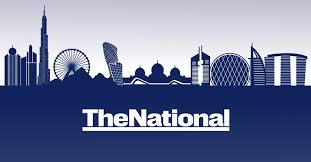Article

It used to be said that you are what you eat. For today's leaders and diplomats, you are what you tw
In some ways, Twitter is simply a return to the lively political debate of the Roman forum.
Seven years ago, I produced a set of guidelines for leaders and diplomats adopting Twitter. At that time, although social media was catching fire among the public, few world leaders were actively using it. Only in the rarest cases – such as that of digital pioneer and former prime minister of Sweden Carl Bildt – were they actually tweeting themselves. Barack Obama had run a groundbreaking social media campaign but struggled to adapt it in government. For those on Twitter, it was a simpler world of 140 characters, more respectful debates and the novelty of a new form of communication.
Now, most notoriously in the case of Donald Trump, Twitter has become a vital, if often blunt, instrument of communication, leadership (or in some cases, lack of it) and diplomacy (ditto). It used to be said that you are what you eat. For many leaders and diplomats now, you are what you tweet.
More than 80 per cent of world leaders now have a Twitter handle. Ministers now engage allies and enemies directly and publicly online. With no international rules to play by, some countries employ armies of bots to attack their opponents, spread disinformation or influence elections. And in connecting with their citizens, leaders now also face fierce competition from cute cats, celebrity haircuts and more than 500 million other tweets sent every day.
Of course, the politics of social media is changing all the time. The Arab Spring and then Mr Trump upended the existing rules. Stalin once famously asked: “How many divisions does the Pope have?” The new question among foreign ministries is: “How many followers does your leader have?” In the Pope’s case, it is an impressive 40 million-plus across his nine Pontifex accounts.
So how can presidents, princes, popes and prime ministers – and indeed, the rest of us – navigate this terrain? Here is a stab at some updated rules:
Be authentic. Many leaders have now recognised that if you're not tweeting yourself, you're not really on Twitter. If you campaigned in poetry tweets, try to govern in poetry tweets. People are more likely to stick around to read your press releases if they feel they know something about you as a person. Too many entertaining accounts go stale the day after an election. It is no surprise that Mr Trump or Indian Prime Minister Narendra Modi’s personal account have millions more followers than their official ones – whether you love them or hate them, it is insurgent, captivating social media and you know it is really them.
Be purposeful. Don’t be an uncle dancing at a wedding, trying to fit in with the cool kids. Leaders need to connect, without falling into the trap of trying to compete with Kim Kardashian or Justin Bieber. A high number of followers is a good sign you’re getting through but not an end in itself. Does your social media build your country’s brand? Is the communication the tip of the iceberg, visible above the water, but connected to solid policy and plans? If not, it is a vanity project. French President Emmanuel Macron and his team have used quick-fire responses and engaging videos to rocket up the Twitter league table but they are also part of an effective strategy to project influence and French values on issues like climate change. You can’t say one thing to a domestic audience and another to an international one. And attention-grabbing tactical victories don’t make a digital diplomacy strategy any more than they make a diplomatic strategy.
Be engaging. The best international diplomacy is action not reportage, purpose not platitudes. So tweets should be about changing the world, not just describing how it looks. Successful social media leaders use multiple platforms and plenty of visuals. United Nations secretary general Antonio Guterres has been a slow adopter of social media but his most effective interventions are videos of him talking, authentically and passionately, about the issues he cares about. Canadian Prime Minister Justin Trudeau has brought a more informal, lighthearted approach to official social media and understands the value of a great photo.
Twitter should be a conversation, not a monologue. So take some calculated risks. Some of the best Twitter dialogue between leaders is where it captures genuine dividing lines. United Nations Security Council arguments between permanent representatives are now regularly played out in real time on Twitter. This would all have seemed undiplomatic just a few years ago. But in some ways it is simply a return to the lively political debate of the Roman forum.
It might seem like a free-for-all out there. But the tone and quality still matters. As with any public intervention, think before you tweet: Mr Trump enraged the British public by retweeting far-right extremists. Don’t bully or hector. Be humble. To paraphrase Abraham Lincoln, whatever you choose to tweet, tweet a good one. Just because there are huge amounts of rubbish out there, this does not mean you should compromise, including basic spelling and punctuation. Especially if it is your first language.
As Britain’s wartime prime minister, Winston Churchill recognised the huge strategic advantage to mastering the medium of the day – in his case, radio broadcasts. I think he, and historical figures from Gandhi to Martin Luther King, would have relished social media. We don’t yet know who will win the battle for influence in the internet age. The rules will keep changing and so will the platforms.
But the biggest risk is not to be in the conversation.

